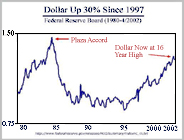BoeingBoy
Veteran
- Nov 9, 2003
- 16,512
- 5,865
- Banned
- #1
Before hitting the Energy Information Admin's "Weekly Petroleum Status Report", which covers the week of 3/14-3/18, some newer news....
The good - crude oil prices are down this week. I was working, but I believe CNBC had crude closing at a little under $57/bbl on Monday after trading above $57/bbl during the day. Today's Bloomberg prices are:
NYMEX $54.l10
Brent $52.51
WTI Cushing $48.96 (hopefully not a mistake since that's a much bigger drop than any other)
The bad - at least for refined product prices. A fire at a BP refinery in Texas has done a so far undetermined amount of damage. Here's the story.
Now for the Weekly Status Report. Some excerpts:
U.S. crude oil imports averaged nearly 10.3 million barrels per day last week,
up 229,000 barrels per day from the previous week. Over the last four weeks,
crude oil imports have averaged about 10.1 million barrels per day, which is
366,000 barrels per day more than averaged over the comparable four weeks last
year.
U.S. commercial crude oil inventories (excluding those in the Strategic
Petroleum Reserve) rose by 4.1 million barrels from the previous week. At 309.3
million barrels, U.S. crude oil inventories are in the upper half of the average
range for this time of year.
Distillate fuel inventories [one of which is jet fuel] fell by 2.8 million barrels last week, and are in the lower half of the average range for this time of year. While most of the decline was in high-sulfur distillate fuel (heating oil), low-sulfur distillate fuel (diesel fuel) also declined.
Total product supplied over the last four-week period has averaged nearly 20.8
million barrels per day, or 2.3 percent more than averaged over the same period
last year.
Distillate fuel demand has averaged 4.3 million barrels per day, or 3.2
percent above the same period last year. Kerosene-type jet fuel demand is up
10.8 percent over the last four weeks compared to the same four-week period last
year.
Now for jet fuel spot prices on 3/18:
New York Harbor $1.6410/gal
Gulf Coast $1.6148
Los Angeles $1.7418
Crude on the 18th:
WTI Cushing $56.80/bbl
Brent $55.97
Jim
The good - crude oil prices are down this week. I was working, but I believe CNBC had crude closing at a little under $57/bbl on Monday after trading above $57/bbl during the day. Today's Bloomberg prices are:
NYMEX $54.l10
Brent $52.51
WTI Cushing $48.96 (hopefully not a mistake since that's a much bigger drop than any other)
The bad - at least for refined product prices. A fire at a BP refinery in Texas has done a so far undetermined amount of damage. Here's the story.
Now for the Weekly Status Report. Some excerpts:
U.S. crude oil imports averaged nearly 10.3 million barrels per day last week,
up 229,000 barrels per day from the previous week. Over the last four weeks,
crude oil imports have averaged about 10.1 million barrels per day, which is
366,000 barrels per day more than averaged over the comparable four weeks last
year.
U.S. commercial crude oil inventories (excluding those in the Strategic
Petroleum Reserve) rose by 4.1 million barrels from the previous week. At 309.3
million barrels, U.S. crude oil inventories are in the upper half of the average
range for this time of year.
Distillate fuel inventories [one of which is jet fuel] fell by 2.8 million barrels last week, and are in the lower half of the average range for this time of year. While most of the decline was in high-sulfur distillate fuel (heating oil), low-sulfur distillate fuel (diesel fuel) also declined.
Total product supplied over the last four-week period has averaged nearly 20.8
million barrels per day, or 2.3 percent more than averaged over the same period
last year.
Distillate fuel demand has averaged 4.3 million barrels per day, or 3.2
percent above the same period last year. Kerosene-type jet fuel demand is up
10.8 percent over the last four weeks compared to the same four-week period last
year.
Now for jet fuel spot prices on 3/18:
New York Harbor $1.6410/gal
Gulf Coast $1.6148
Los Angeles $1.7418
Crude on the 18th:
WTI Cushing $56.80/bbl
Brent $55.97
Jim

